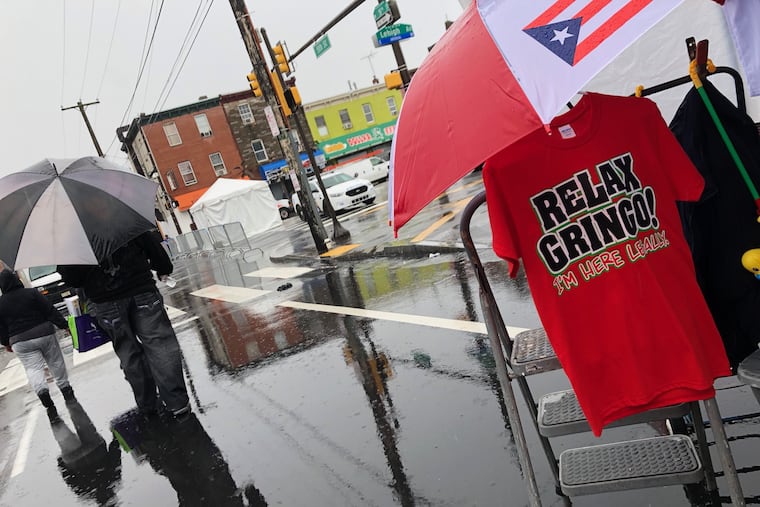Philly Puerto Ricans respond to Justice Sotomayor’s comments about identity
For some Latinos, Puerto Ricans in particular, it raises questions about identity and cultural roots, as some have been a part of the U.S. territory for at least 100 years.

After Supreme Court Justice Sonia Sotomayor told National Public Radio's Maria Hinojosa over the weekend that she had no problem considering herself an American and a Puerto Rican, the Inquirer and Daily News reached out to area residents for their thoughts on her assertion.
"I am a very proud Latina, who is a proud American," Sotomayor told Hinojosa on Latino USA's latest episode. "I was born and raised in New York. I'm a proud, proud American, but I'm also a very proud puertorriqueña. And, for me, there is no tension in those two things."
Sotomayor, the third woman and the first judge of Latino background appointed to the nation's highest court, touched on an issue faced by thousands of Latinos in this country: defining one's identity. For Puerto Ricans in particular, the issue raises complicated questions because the island has been a U.S. territory for 100 years now: Are Puerto Ricans Americans? Can you be both? What makes you American? What makes you Puerto Rican?
We talked to three Philadelphians of Puerto Rican descent about Sotomayor's comments, and found different opinions:
Karen Rodríguez, 50, an administrator for PA Statewide Indivisible, a progressive group that pursues an activist agenda, said Puerto Ricans learn U.S. and Puerto Rican cultures at once — as well as English and Spanish. That, she said, makes it easily for them to identify as being part of both places.
"It's true. I don't feel a separation, because I grew up in a bicultural way. And, when you're little, you don't understand it, but it becomes a natural process in which you could be in both cultures and feel proud of both cultures. That's how I feel."
Rodríguez, who was born in Allentown, raised in Utuado, Puerto Rico, with her three siblings and now lives in Bristol, said Utuado and her childhood memories were washed away when Hurricane María hit the island last year. For that reason, she's one of the organizers for Saturday's People of Puerto Rico's March to Remember, which — she hopes — will bring attention to the relief efforts still needed on the island. The march steps off at 10 a.m. from 19th Street and Ben Franklin Parkway and ends at the steps of the Philadelphia Museum of Art on Eakins Oval.
Priscilla Gac-Artigas, 63, is a Latin American literature professor at Monmouth University in New Jersey. She said being a minority in academia can be make it hard for some to embrace their roots, especially when they can feel they are being silenced by the vast majority. And for Latinas like her, it's a vast majority indeed: Only 4 percent of full-time instructors in university level are women of Hispanic background.
"These days, we talk about a mixed America and I am with her when she insists that there is no different pride for the two," Gac-Artigas said.
Gac-Artigas studied French Literature in the University of Puerto Rico in Río Piedras and in Middlebury College in Vermont for her master's degree. She earned her doctorate's degree in Latin American literature from France's University of Franche-Comté. She is from Bayamón, Puerto Rico, in the northern region of the island, where her family still lives. She lives in Monmouth County.
Gladys Carrión, 44, an English as a second language teacher at Julia de Burgos Elementary School in Fairhill, said that Puerto Ricans are an "odd puzzle piece" when it comes to identity.
She was born in Fajardo, Puerto Rico, and moved to Philadelphia with her family when she was 2, but returned to Puerto Rico for her higher education. She earned bachelor's and master's degrees in education at Turabo University and began her teaching career on the island before returning to the city more than 10 years ago.
When she's in Puerto Rico, she's not Puerto Rican enough, and when she's in the U.S. she's not American enough.
"I don't feel stressed or tense about being from both places, but it's a shame that, when you leave the island, they call you a traitor to your culture. When you come to the States, you are a newcomer and not American enough, despite being American," she said.
Nevertheless, she said, defining oneself as a Puerto Rican-American never seems to fit.